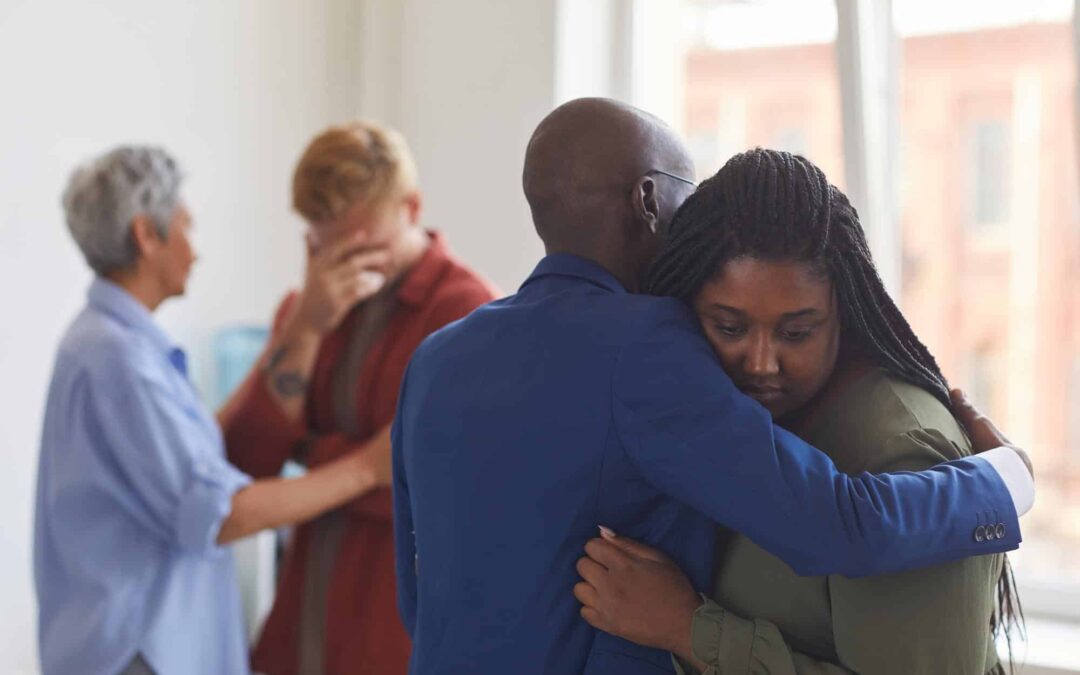Completing a rehab program is a remarkable achievement. You’ve faced your challenges head-on and taken significant steps towards a healthier, happier life. However, life after rehab can be daunting. The world outside the structured environment presents a new set of challenges, and the risk of relapse is a constant concern.
This article, brought to you by Resolute Recovery, a leading provider of addiction treatment programs, equips you with the knowledge and tools you need to navigate life after rehab successfully. We’ll delve into relapse prevention strategies, explore healthy coping mechanisms, and guide you towards building a strong support system. Remember, you’re not alone in this journey. With dedication and the right resources, you can maintain sobriety and thrive.
Building a Strong Foundation for Sobriety
Life after rehab requires a conscious effort to solidify the foundation of your recovery. Here are some crucial steps to take:
- Develop a Relapse Prevention Plan: In collaboration with your therapist (consider our intensive outpatient program), create a personalized relapse prevention plan. This plan should identify your triggers (people, places, situations), your early warning signs (increased anxiety, cravings), and coping mechanisms to address them.
- Embrace a Healthy Lifestyle: Prioritize activities that nourish your mind, body, and spirit. Regular exercise promotes physical and mental well-being, reduces stress, and boosts your mood. A balanced diet provides your body with the nutrients it needs to function optimally.
- Practice Self-Care: Make time for activities that bring you joy and relaxation. Whether it’s spending time in nature, listening to music, or pursuing a hobby, self-care helps you manage stress and cultivate inner peace.
Identifying and Avoiding Relapse Triggers
Life after rehab involves recognizing your relapse triggers – the internal or external cues that can lead you back to substance use. Triggers can be:
- People: Certain individuals or social circles might be associated with your past substance use. Consider limiting contact or establishing boundaries.
- Places: Environments where you used substances can be powerful triggers. Avoid these places or find healthy alternatives.
- Emotions: Stress, anxiety, boredom, and loneliness can all be triggers. Learn healthy coping mechanisms to manage these emotions effectively.
The National Institute on Drug Abuse (NIDA) provides a comprehensive list of common relapse triggers. By identifying your triggers and developing strategies to avoid them, you significantly increase your chances of staying sober.
Building a Supportive Network
Life after rehab is significantly easier with a strong support system in your corner. Surround yourself with positive influences who will encourage and empower you on your recovery journey. Consider including the following in your support network:
- Support Groups: Connecting with others who understand your struggles can be incredibly validating. Support groups like Alcoholics Anonymous (AA) or Narcotics Anonymous (NA) offer a safe space to share your experiences and receive encouragement.
- Therapist: Regular therapy sessions provide a platform to address underlying issues that may contribute to addiction. Your therapist can also equip you with additional coping mechanisms and relapse prevention strategies.
- Sober Living: Consider transitioning to a sober living environment after rehab. This structured setting provides a safe space to practice your recovery skills and receive ongoing support. Resolute Recovery offers high-quality sober living facilities to help ease the transition back into independent living.
- Loved Ones: Educate your family and friends about addiction and recovery. Communicate your boundaries and needs openly. Their understanding and support can be a powerful motivator in your journey.
Healthy Coping Mechanisms for Life After Rehab
Life after rehab is about learning to manage difficult emotions and situations without resorting to substance use. Here are some effective coping mechanisms to integrate into your life:
- Mindfulness and Meditation: Mindfulness practices like meditation help you become more aware of your thoughts and emotions without judgment. This self-awareness allows you to respond to challenging situations constructively rather than impulsively.
- Relaxation Techniques: Techniques like deep breathing, progressive muscle relaxation, and yoga can effectively manage stress and anxiety, common triggers for relapse.
- Journaling: Writing down your thoughts and feelings can be a cathartic way to process difficult emotions and identify recurrent patterns.
- Creative Expression: Engage in creative outlets
Facing Cravings and Challenges
Life after rehab isn’t always smooth sailing. Cravings are a natural part of the recovery process, but they don’t have to lead to relapse. Here’s how to manage them effectively:
- Distraction: When cravings arise, distract yourself with a healthy activity you enjoy. Exercise, listening to music, spending time in nature, or connecting with a supportive friend can all help take your mind off the craving.
- Urge Surfing: Cravings often peak in intensity for a short period before subsiding. Practice “urge surfing” – acknowledging the craving without judgment and allowing it to pass without acting on it.
- Seek Support: Don’t hesitate to reach out to your therapist, sponsor (if you’re involved in a support group program), or a trusted friend when experiencing intense cravings. Talking it out can significantly reduce the urge to relapse.
Remember, setbacks are a normal part of the recovery journey. Don’t let a slip-up derail your entire progress. If you do experience a relapse, utilize the tools and support system you’ve established to get back on track immediately.
Maintaining Long-Term Sobriety: It’s a Marathon, Not a Sprint
Life after rehab is a lifelong commitment. Here are some additional tips to ensure long-term sobriety:
- Celebrate Milestones: Acknowledge and celebrate your achievements, big and small. Completing a week, month, or year sober are all significant milestones that deserve recognition.
- Continue Learning: Staying informed about addiction and recovery is crucial. Read books, articles, and attend workshops related to addiction recovery. This ongoing learning helps you develop a deeper understanding of yourself and your recovery journey.
- Give Back: Helping others struggling with addiction can be incredibly rewarding. Consider volunteering at a treatment center or sponsoring someone new in recovery.
- Focus on Personal Growth: Recovery opens doors to a fulfilling life. Explore your interests, set goals, and pursue your dreams.
Life After Rehab – A Brighter Future Awaits
Life after rehab presents challenges, but it’s also an opportunity for immense personal growth and a life filled with purpose. By following these tips, building a strong support system, and prioritizing your well-being, you can navigate this journey successfully. Remember, Resolute Recovery is here to support you every step of the way. We offer a variety of evidence-based treatment programs, aftercare services, and a dedicated team of professionals committed to your long-term recovery. Contact us today to discuss your individual needs and embark on your path to a brighter future.
References:





